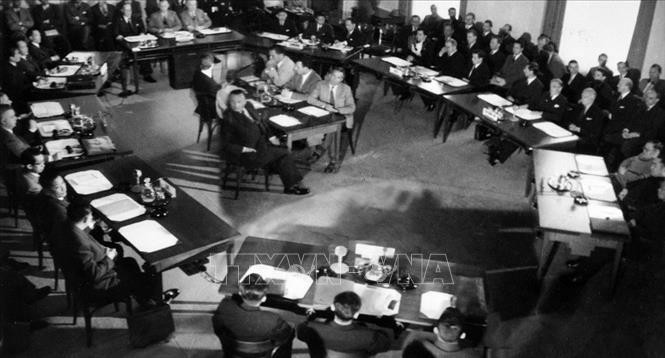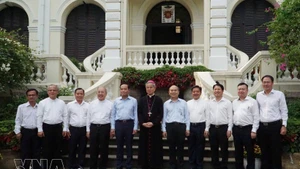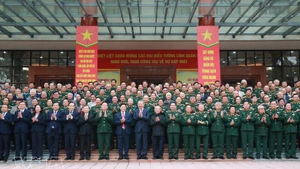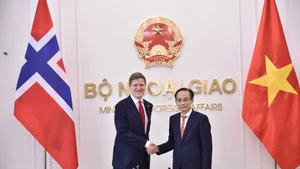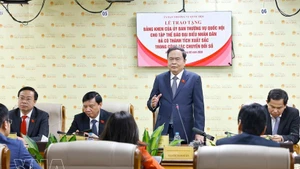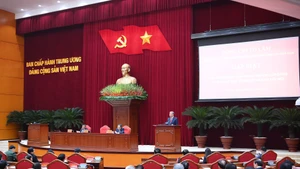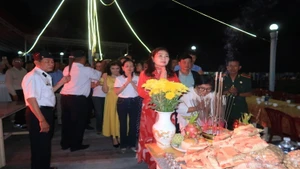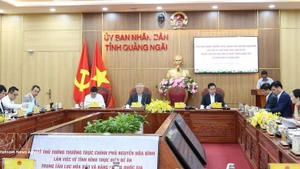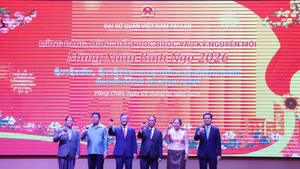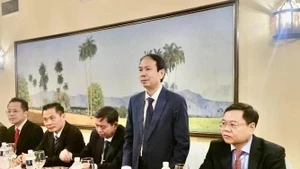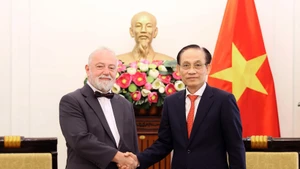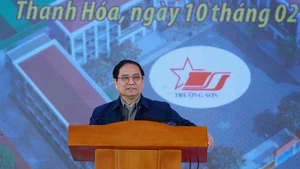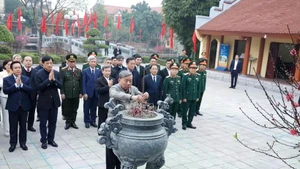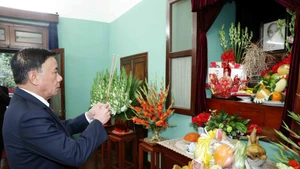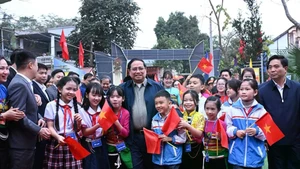On the occasion of the 70th anniversary of the signing of the document (July 21, 1954-2024), diplomats affirmed the importance and great historical significance of the Agreement.
Lao Ambassador to Vietnam Khamphao Ernthavanh: An important milestone in the cause of national liberation
The signing of the Geneva Agreement on the Cessation of Hostilities in Vietnam is an important milestone in the long and difficult struggle of the people of the three Indochina countries to regain peace and independence for their fatherland.
The signing of the Agreement was a great victory, when the French colonialists and countries participating in the Geneva Conference for the first time pledged to respect the independence, sovereignty, unity, and territorial integrity of the three Indochina countries and not to interfere in their domestic affairs.
At the same time, the signing of the Agreement also clearly demonstrates the noble patriotism and sound revolutionary path of the Indochinese Communist Party led by President Ho Chi Minh.
Before 1954, the French colonialists carried out many forms of repression to extinguish national liberation movements in the three Indochina countries, which cost the lives of many officers, soldiers, and people.
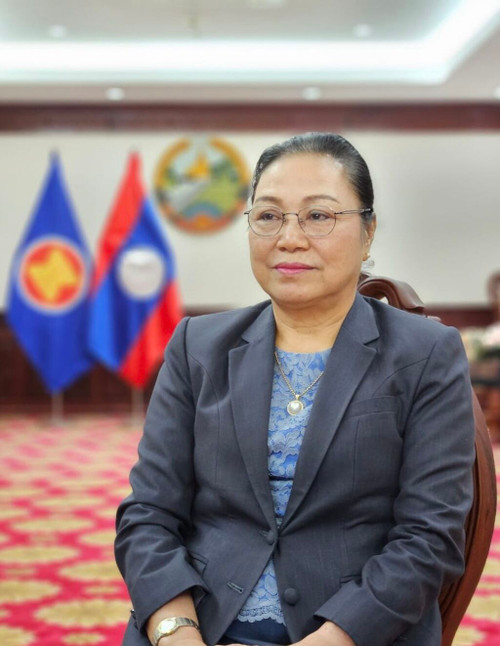 |
| Lao Ambassador to Vietnam Khamphao Ernthavanh (Photo: Lao Embassy in Vietnam) |
The struggle against the French colonialists in the three Indochina countries was extremely arduous, but resilient and led to victory, with an important milestone being the Dien Bien Phu Victory of Vietnam on May 7, 1954. The Dien Bien Phu Victory forced the French colonialists to lay down their weapons and sit down at the negotiation table at the Geneva Conference.
The lessons of negotiation at the Geneva Conference and the Dien Bien Phu Victory have become a guiding torch leading the movement to completely liberate the three Indochina countries.
70 years have passed, but the values and lessons from the signing of the Geneva Agreement still remain valuable to the national protection, construction, and development of Laos, Vietnam, and Cambodia.
The current regional and world situation continues to be unstable, complicated, and unpredictable, posing many challenges for security and development in countries around the world, including Laos, Vietnam, and Cambodia.
We have fought together against the French colonialists in the past, and now we will further tighten our cooperation and support each other to safeguard national independence and liberty, while at the same time making an important contribution to promoting peace and development in the world.
Cambodian Ambassador to Vietnam Chea Kimtha: Standing side by side in the national protection and construction
The 70th anniversary of the signing of the Geneva Agreement on the Cessation of Hostilities in Vietnam is an event of great historical significance, recalling the resistance period and the resilient examples of the Vietnamese liberation army, which fought to regain independence from colonial rule.
During the struggle for national independence which took place vibrantly and enthusiastically throughout Indochina, Cambodia, Vietnam, and Laos united to stand side by side in the fight for their independence and freedom.
That joint effort led to the signing of the Geneva Agreement on the Cessation of Hostilities in Vietnam.
The Geneva Conference issued a declaration urging concerned countries to respect the independence, sovereignty, and territorial integrity of Vietnam, Laos, and Cambodia, constituting a major step towards the restoration of peace in the region.
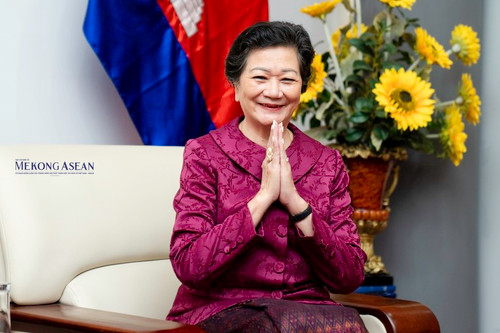 |
| Cambodian Ambassador to Vietnam Chea Kimtha (Photo: mekongasean.vn) |
After the signing of the Geneva Agreement, Cambodia, Vietnam, and Laos continued to face unpredictable challenges. However, the three countries have stood side by side and support each other in the national construction and socio-economic development.
On behalf of the Royal Government and the people of Cambodia, I would like to express my deep gratitude to the Party, State, Fatherland Front, and people of Vietnam for supporting Cambodia in escaping the genocidal regime in 1979, assisting Cambodia's socio-economic development, and closely coordinating with Cambodia in regional and international forums, including supporting Cambodia to successfully assume the role of ASEAN Chairman in 2022.
Cambodia, Vietnam, and Laos are close neighbours with a tradition of solidarity and mutual support. Today, our three countries have moved forward with confidence, actively contributing to maintaining peace, stability, prosperity, international cooperation, as well as economic development in the region and the world at large.
